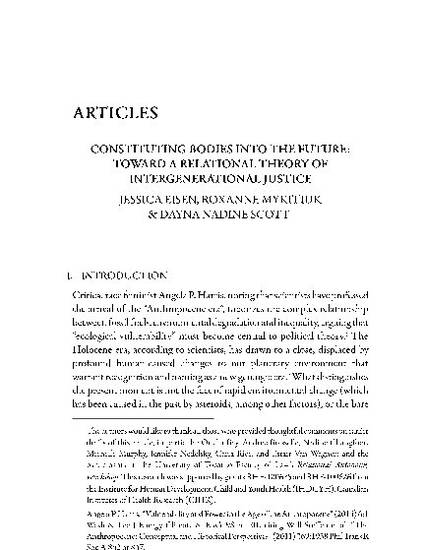
Questions of justice now unfurl on spatial and temporal scales at once global and microscopic, immediate and spanning through the ages. Legal and political concepts of causation and responsibility are complicated and reconfigured by our growing awareness of the intergenerational consequences of contemporary choices. In this context, the House of Commons Standing Committee on Environment and Sustainable Development ("Standing Committee") recently recommended that the Government of Canada create "an advocate for Canada's future generations."' The Standing Committee's report expressly cites growing transnational and international attention to the demands of "intergenerational equity''. noting that various jurisdictions have experimented with institutional committees or advocates for future generations. The challenges to such projects are daunting. How can we know our obligations to future persons who do not yet exist, or may not even come into being?
Available at: http://works.bepress.com/dayna_scott/68/

This article is distributed in the Osgoode Digital Commons with permission from the original copyright holder and publisher, UBC Press.